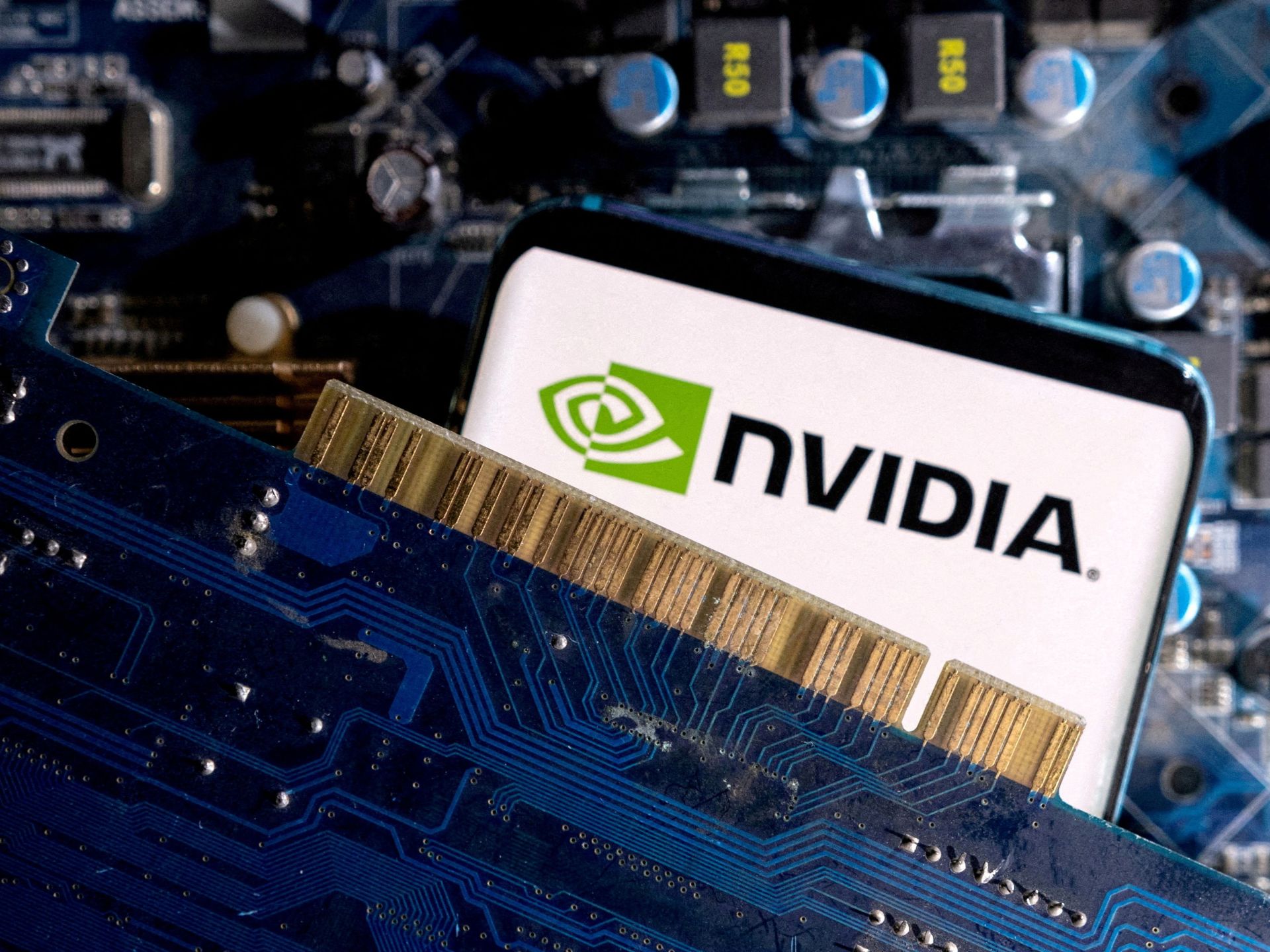Taipei, Taiwan – China has launched an antitrust investigation into chip giant Nvidia in what appears to be Beijing’s latest act of retaliation against Washington’s sanctions on Chinese tech companies.
Chinese state media said on Monday that the California-based chipmaker was being investigated by the State Administration for Market Regulation for potentially violating China’s antimonopoly laws.
Regulators will also review the company’s $6.9bn acquisition of Mellanox Technologies, an Israeli-American supplier specialising in computer networking products, state media reports said, without providing further details.
Chinese regulators approved the deal in 2020 with several restrictive conditions, including a provision that Nvidia would not discriminate against Chinese suppliers.
Nvidia, which designs advanced chips used to power artificial intelligence (AI), is one of the world’s most valuable companies, with a market capitalisation of more than $3.4 trillion.
The company’s dominance in the AI chips, however, has drawn scrutiny from regulators, including in the United States.
Earlier this year, the US Department of Justice launched its own antitrust investigation into Nvidia, the tech news outlet The Information reported in August, citing people familiar with the matter.
Shares of Nvidia closed 2.55 percent lower on Monday following the news of Beijing’s probe.
Nvidia did not immediately respond to a request for comment.
China’s antimonopoly probe comes a week after the US Department of Commerce announced its third round of export controls aimed at keeping advanced technology out of the hands of the Chinese chip industry.
The restrictions added 140 additional Chinese companies to the department’s Entity List of blacklisted firms.
In what has become a tit-for-tat exchange of trade restrictions, Beijing last week banned exports of gallium, germanium and antimony – which are used in the production of chips, solar panels and electric vehicle (EV) batteries, among other technologies – to the US.
Ian Chong, a Singapore-based political scientist focusing on security issues, said Beijing’s recent moves are more symbolic than damaging.
“The PRC will often target symbolic companies or goods and make a bigger show of it than is often the case,” Chong told Al Jazeera, using the acronym of the People’s Republic of China.
“Nvidia is so restricted from selling in the PRC market anyway, so I’m not sure what the actual restrictions will do.”
Chong said the restrictions were reminiscent of Beijing’s previous bans on Australian wine and Japanese seafood, which were used to signal anger at Canberra and Tokyo.
In both cases, the bans did not include critical exports like minerals or electronics.
Gallium and germanium are also imported by the US from other countries, including Taiwan, Canada, South Korea, Japan and Belgium, according to the supply chain consulting firm TECHCET, which has said that only antimony is likely to be difficult to substitute.
Nvidia has worked around US export controls in the past by designing separate chips for China, where it still earns 15 percent of its revenue.
The company has plans to partner with the Chinese company Inspur to distribute a new China-only AI chip in the second quarter of 2025, the Reuters news agency reported, citing unnamed sources familiar with the news.
Nvidia is not the only company Beijing has targeted in its trade war with Washington.
In October, the Cybersecurity Association of China recommended a security review for Intel products and accused the company of installing backdoor surveillance features.
Last year, Chinese regulators barred products from the US memory chipmaker Micron from key infrastructure after the company failed a security review.
Both investigations followed probes by the US and other countries into Chinese tech companies Huawei and ZTE.
